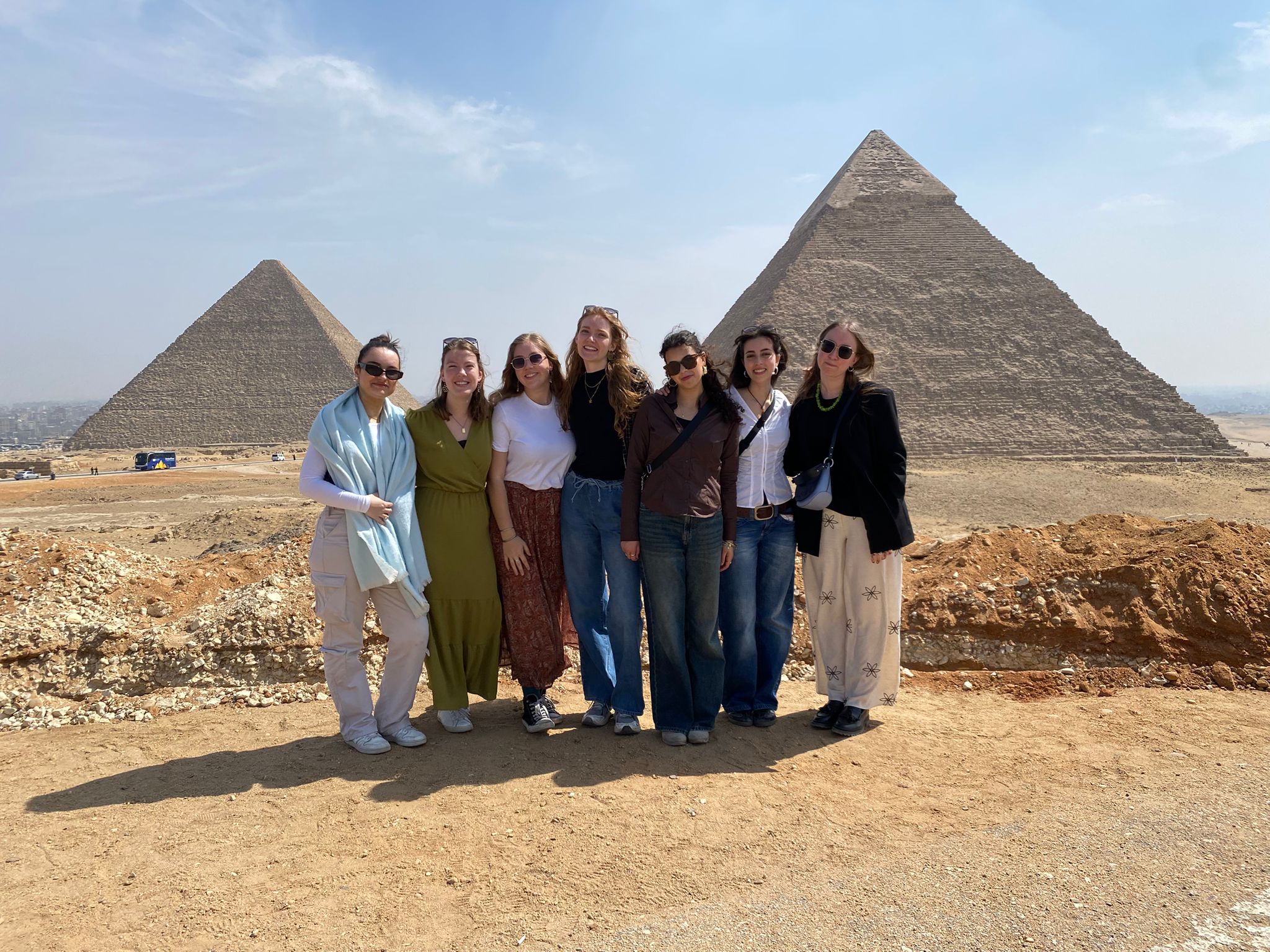Student Experiences
My NVICairo Experience - Marie Costers (MA student, University of Antwerp, NVIC student Spring 2025)
Introduce yourself! What did you study at your home university and what made you choose to come to NVIC for your study abroad?
I am a student of the Master’s programme Urban History at the University of Antwerp. Before starting this degree, I had thought about taking up Arabic studies; when I got the chance to take an introductory course on the Middle East, it sparked my initial interest in the region even more. So when I came across the Middle East Studies program at NVIC in Cairo, it seemed like the perfect way to bridge these two interests.
For my Master’s focus on urban history, Cairo is such an exciting place to be – it’s the largest city in the Arab world and has a rich, layered history. Plus, having access to unique archival material here for my thesis on Cairo’s urban history was a deciding extra factor to come to NVIC.

Describe your average day as a student at NVIC
NVIC students have packed class schedules that allow them to really dive into Arabic. And if you get tired during the day, a take-away coffee from the café around the corner or a delicious taamiya sandwich from the cart a few streets away will be sure to pick you up! And it’s not just lectures either: during the breaks, everyone would spill out into the institute’s outside sitting area, hanging out with the collection of sweet resident cats. By the end of the semester, it was impossible not to have your heart stolen by at least one of them.


What was your favorite thing about being in Cairo for a semester? Did anything surprise you?
Before I left for Cairo, I learnt that the city’s Arabic name, Al-Qahirah, means “The Conqueror”. It really does feel like the perfect description: the scale, the energy, the sense that there’s always something happening. This is what I loved most about being in Cairo: the feeling that everything has the potential to turn into an adventure. One day, a visit to a small archive turned around when we found out the online information was not correct – the archive did not exist anymore. However, me and my friend were welcomed into an ice cream shop on the same street – one that had been there since the 1960s – and the owners enlightened us with a history of the neighbourhood over a scoop of farawla ice cream.
To some, the city’s intensity could feel overwhelming at times, but what stuck with me was how community-oriented life is. This culture of sharing – whether it’s food, things, homes, information, or just a helping hand – makes it so easy to feel welcome in Cairo and become a part of the city.

What types of things did you learn in class?
I was enrolled in the Middle East Studies program, so I had both Arabic and classes about the Egyptian context. Contextualising Contemporary Egypt, Historical Geographies of the Middle East, and Gender in Contemporary Egypt all shed a different light on the history, culture and society of the environment we became part of during the semester. The interactive Arabic classes were focused on day-to-day scenarios. I will never forget trying to tell the class about the gecko I had spotted in my bathtub over the weekend. Without knowing the Arabic word for gecko, it was a challenge, involving a lot of expressive communication. In the end, the teacher stepped in and taught us that the animal I encountered is called a borṣ.
How do you think your time at NVIC will help you in your career path?
What stuck with me from my time at NVIC, and in Cairo, were the detours. Things don’t always go as planned, whether it’s literally taking a different route or finding an unexpected solution to a problem. Cairo teaches you not just to accept that, but to actually see the value in it. Those detours often lead to insights, experiences and connections you wouldn’t have found otherwise. I think that is such an important skill for any career, and even for life: not always thinking in straight lines, but staying open to what the unexpected can bring.
Did you travel in Egypt? Where did you go and what was your favourite spot?
I travelled around! The trip to Alexandria with all the students was a great start to discovering other sides of Egypt. We filled every semester break and some weekends with more sightseeing: from the impressive ancient heritage sites in Luxor and Abu Simbel, to experiencing the beauty of Upper Egypt under the blazing heat in Aswan, and we even spent one weekend in Sinai. There, we hiked all the way up to St Catherine’s mountain, Egypt’s highest point, and slept under the stars. I also spent some time learning how to dive in Dahab – highly recommended!



Would you recommend this programme to other students? Why?
Absolutely! The small groups and highly interactive teaching make the program very engaging, and I also really loved the occasional informal conversations with the professors about all things Egypt: from food recommendations over cultural customs to city must-sees. The calm library with its diverse collection is also a wonderful place to work.
What stood out to me most is how well the institute balances academic study with a real connection to the city. Through excursions, open lectures and public film screenings, the institute never feels like an isolated “academic island”. Instead, it feels an integral part of Cairo – and Cairo becomes part of the institute.
Do you have any tips for incoming students?
If you have a chance, arrive well before classes start to get a head start on exploring the city, and don’t book your return flight too soon after the semester ends: you will not be done with Cairo yet!
-
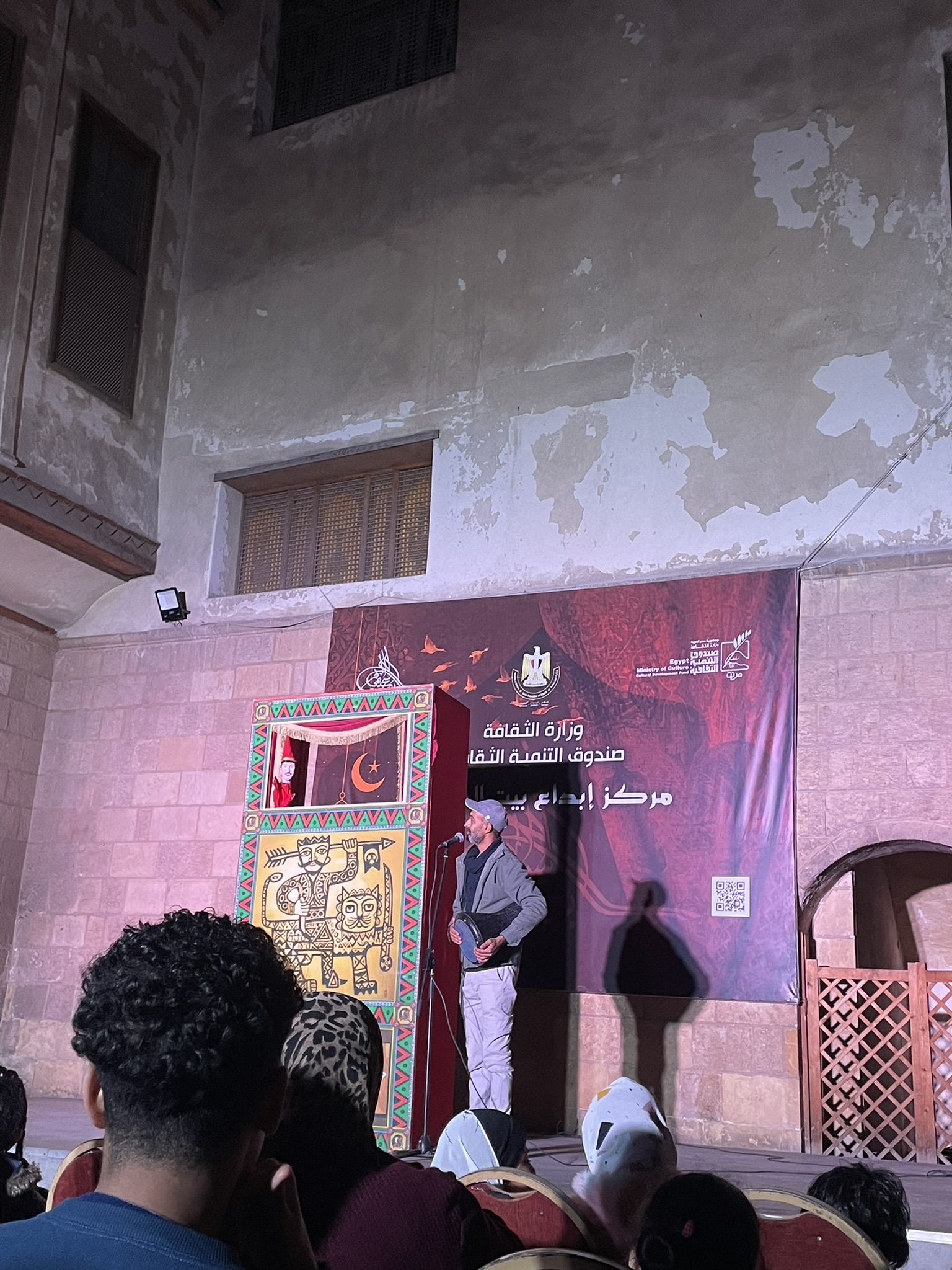
Araguz Bayt al-Suhaymi -
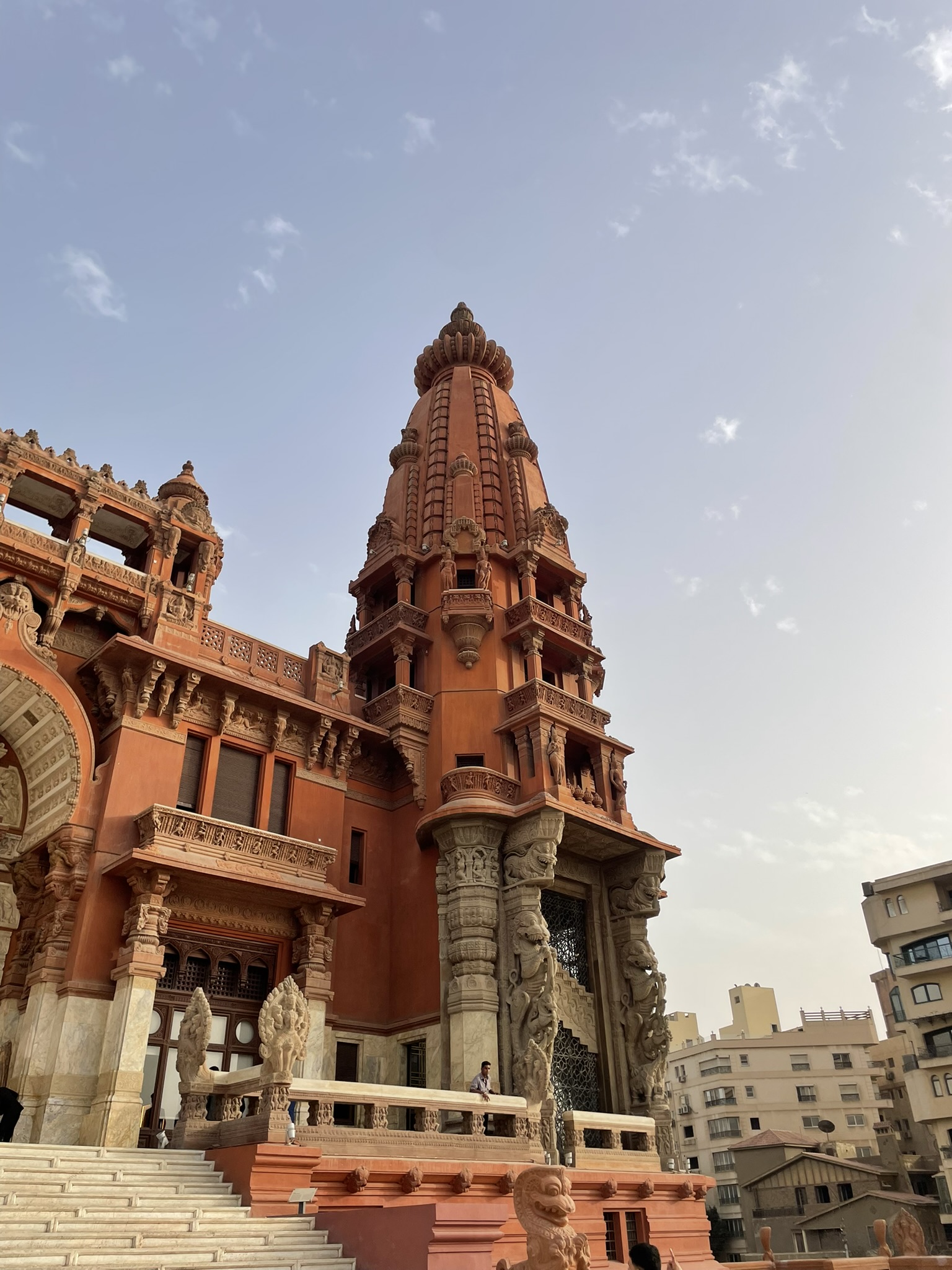
Baron Empain palace -
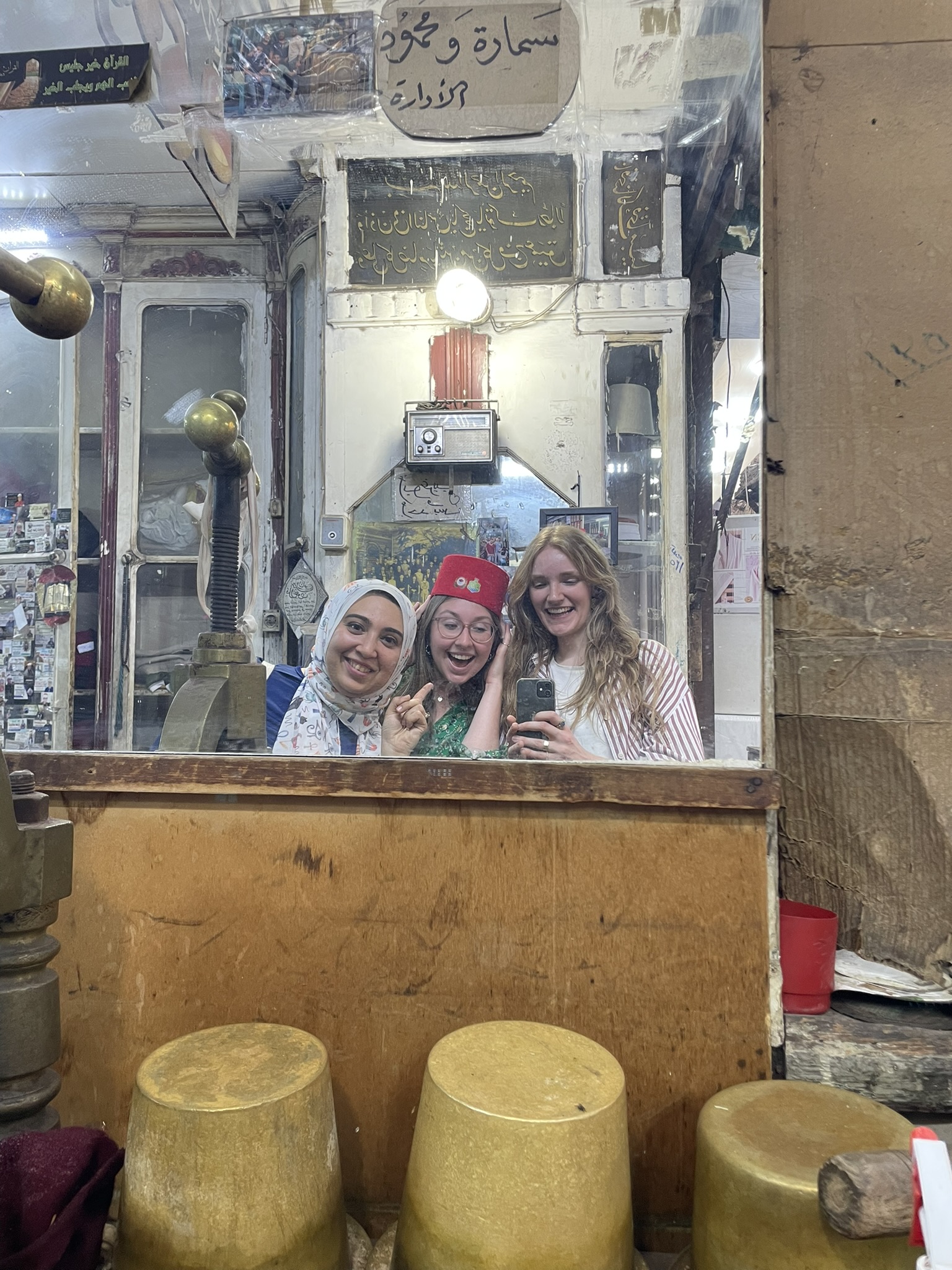
Historic Cairo -
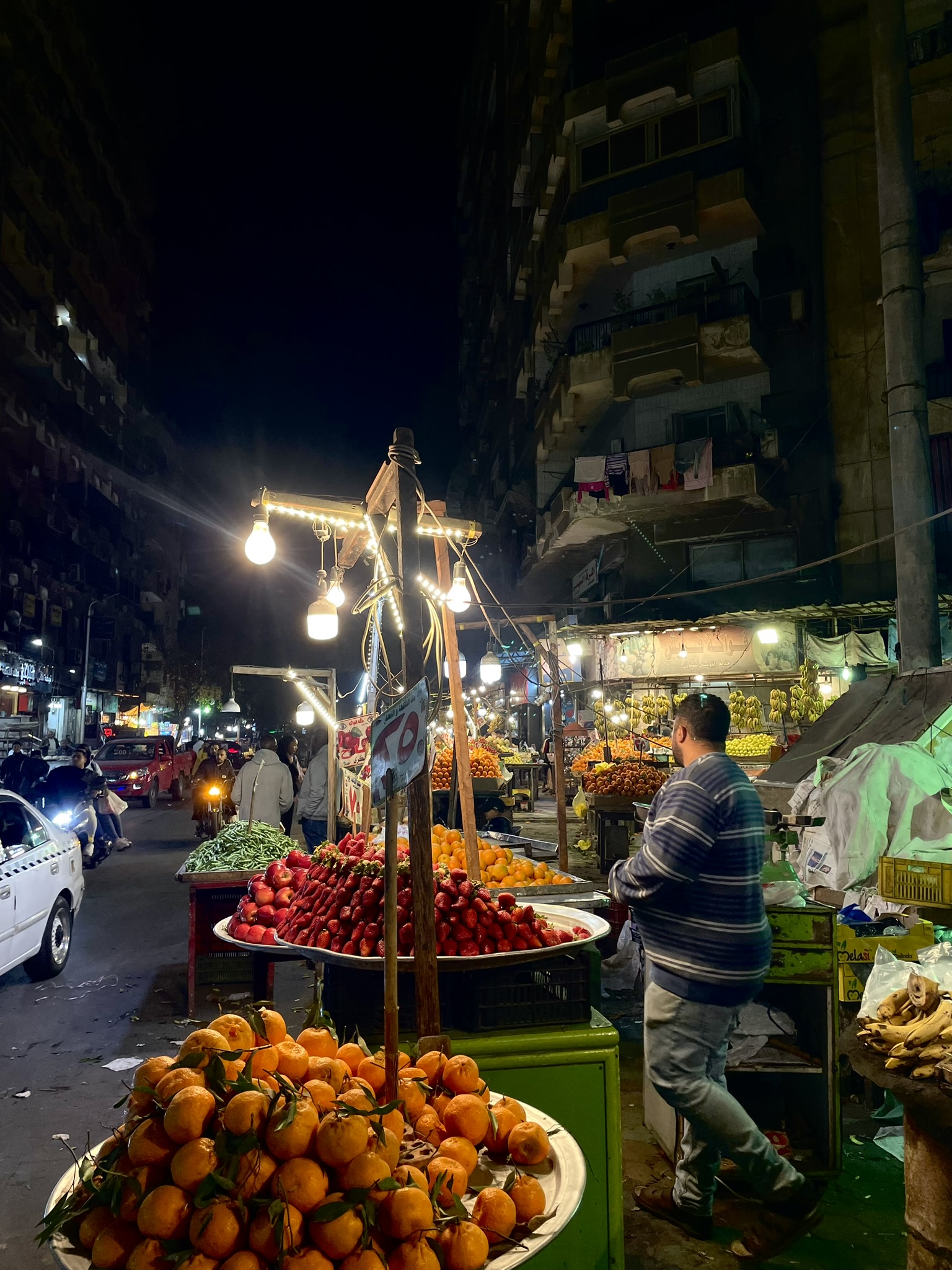
Evening market -
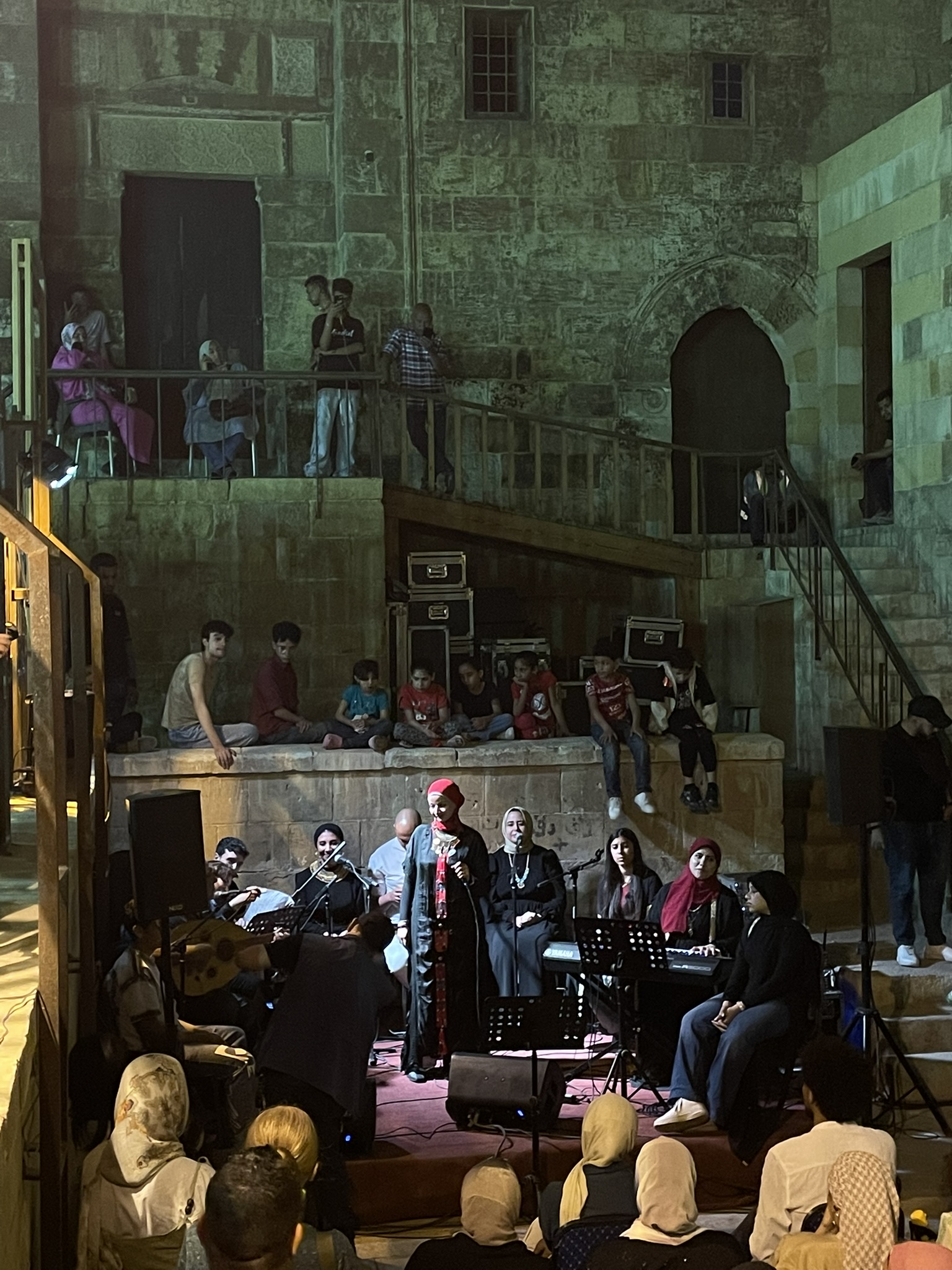
MASQ - Dead City performance -
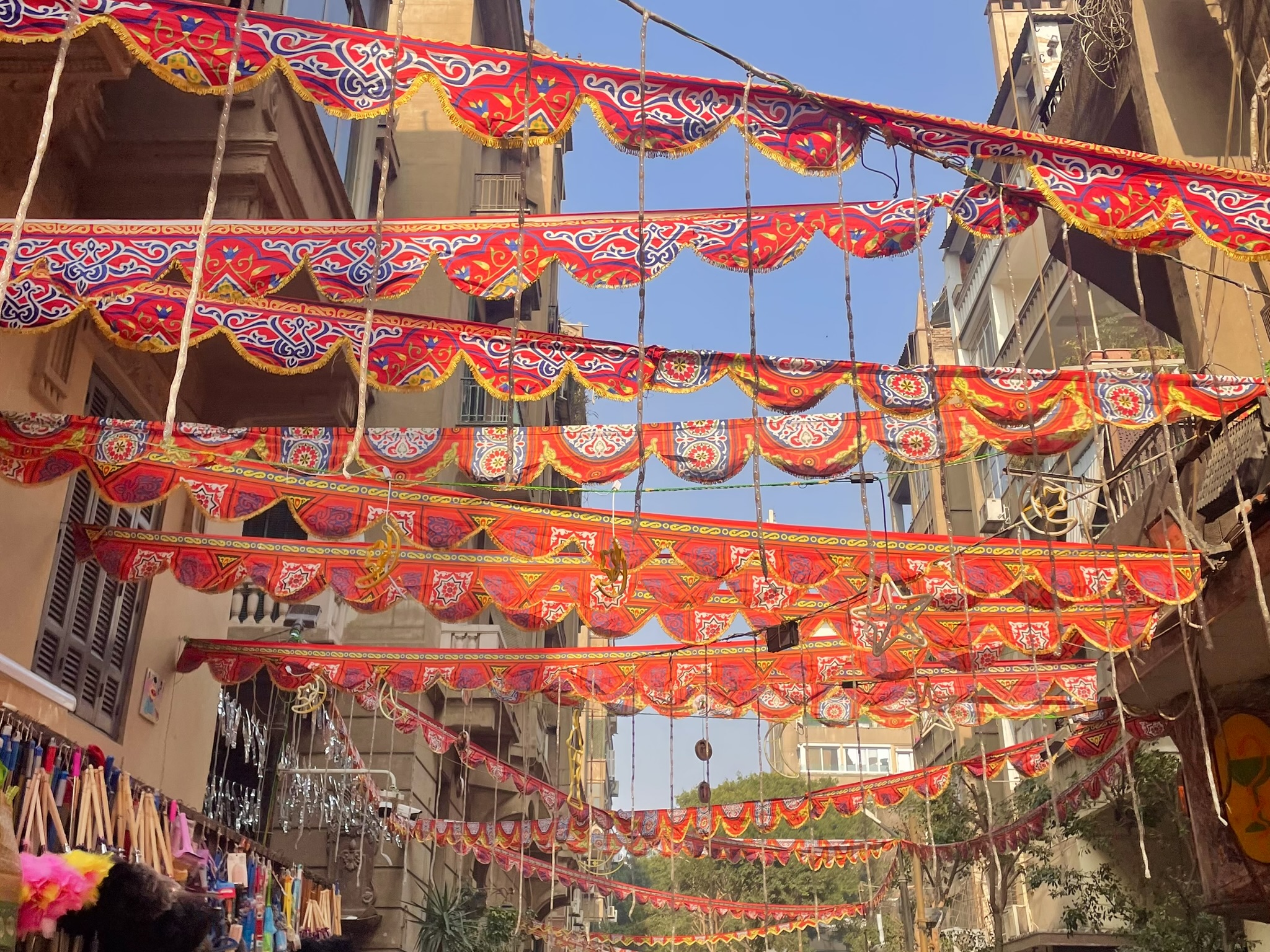
Ramadan Zamalek

